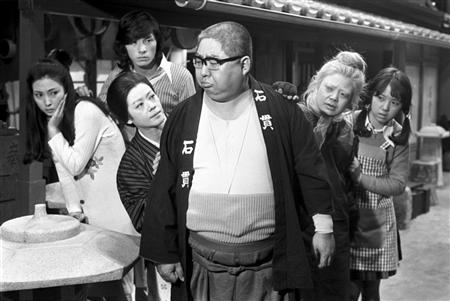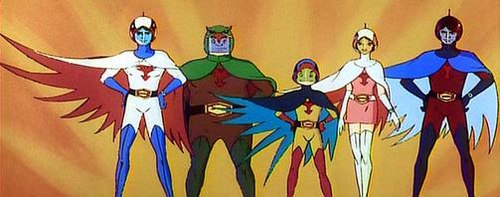
[ad_1]

Asei Kobayashi, who died on 30th May from a heart attack, was an unlikely candidate for musical composer, or actor, or game-show champion…. Pushed by his parents into studying to be a doctor, he transferred without telling them to the department of economics at Keio University, where his classmates included another future composer, Isao Tomita. His parents did not discover the deception until his graduation ceremony, and were not amused.
Kobayashi continued to disappoint them by finding a job in a finance company and then quitting after only a few weeks to study music with Tadashi Hattori. Success eluded him at first, until he found a new and lucrative niche writing advertising jingles for literally hundreds of clients, in everything from shampoo commercials to Suntory whisky.
He also found multiple contracts awaiting him in the new field of animated TV cartoons, writing music for Wolf Guy Ken, Dartanius and Tekkaman, among many others. His most memorable compositions in his 1970s heyday were the two opening songs used in the anime show known abroad as Battle of the Planets. The first, “Down with Galactor”, featured a children’s choir hoping to smite cosmic enemies. The second, which began as an ending theme but was eventually moved to the front was “The Gatchaman Song”, a stirring anthem sung by Masato Shimon, with lyrics provided by the “Tatsunoko Production Committee”. It was much parodied among school-children of the day, but also fondly remembered – thirty years later, a Japanese film would feature two middle-aged ladies bonding over their attempt to remember the lyrics in a Helsinki bookstore.

The surprisingly poetic “Gatchaman Song” has since become a staple of anime karaoke:
Who’s that? Who’s that? Who’s that?
Shadows dancing at the edge of the sky.
White wings of the Gatchaman!
Flying out to risk their lives
Phoenix of the Science Ninja.
Although the songs were excised from the English-language release, Kobayashi’s music remained in multiple arrangements and reprises throughout the soundtrack.
In 1974, Kobayashi became a TV star, taking on the role of the titular portly stone mason in Kantaro Terauchi and Family, a drama notorious in its day for confronting burning social issues. He claimed that his already ballooning bodyweight was the clincher – few actors were obese at the time, ironically narrowing the field for him and beating thinner, better established actors to the role. The following year, he would win an award for his music for “From a Northern Inn”, a weepy tune about a girl knitting a sweater for a boy who will never wear it. The song twice entered the charts and also a later anime – in Isao Takahata’s film Chie the Brat (1981), the leading lady belts it out at her father, in a passive-aggressive way of accusing him of paternal neglect.
Behind the scenes, Kobayashi was also instrumental in the formation of a musicians’ union to fight corruption within the Japanese licensing industry, and would write a book about his struggles with his weight. In later years he became a multiple-winner on a Japanese game show not unlike Only Connect, where he developed a reputation for impossibly guessing the answer after seeing only a single clue. The memorable theme song to Turn-A Gundam, assumed by many fans to be the work of the series composer Yoko Kanno, was actually one of Kobayashi’s later career triumphs.
Jonathan Clements
[ad_2]




